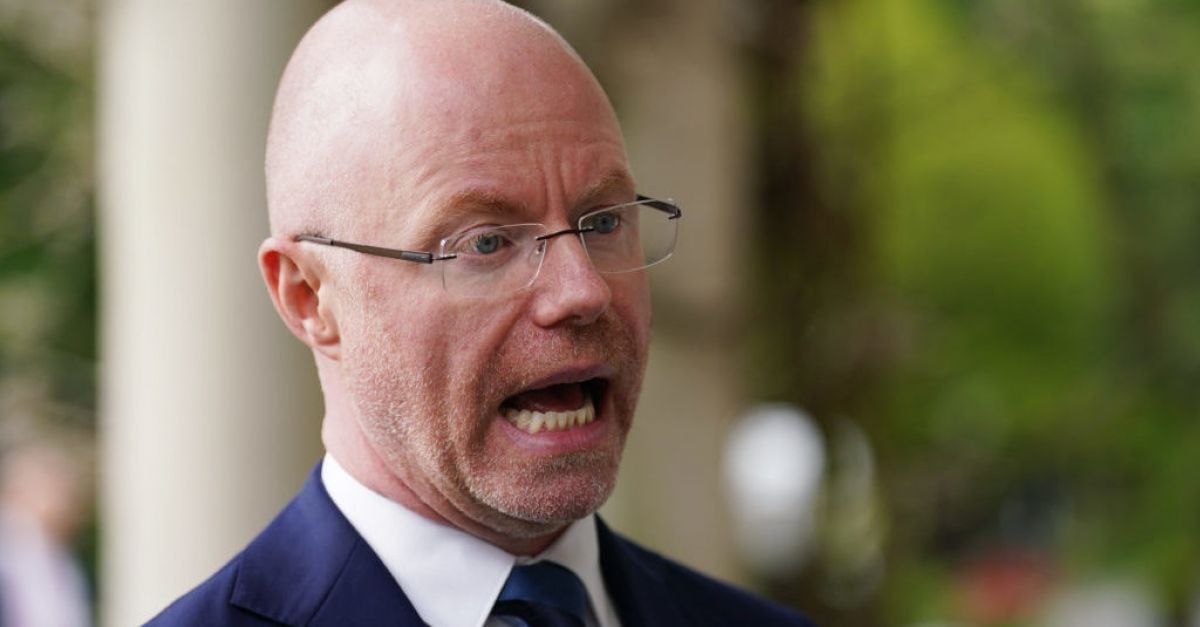World
Government announces new beds ‘equivalent to six large hospitals’ | BreakingNews.ie

The Government has announced around 3,000 new hospital beds which would be equivalent to “six large hospitals”.
Minister for Health Stephen Donnelly said the measure was a “gamechanger” and called it “the largest planned expansion of public hospital beds in many decades”.
The plan sees 2,997 new hospital inpatient beds and 355 replacement beds to be introduced at various locations across the country, which is separate to the 1,015 hospital beds that have already been promised.
The Department of Health said the new beds represented “a total planned capacity increase of 3,438 net additional acute in-patient beds and 929 replacement acute inpatient beds over the period 2024 to 2031”.
Mr Donnelly said that the investment in more hospital beds would be “contingent” on being able to show the beds lead to “increased productivity” and that “more and more patients are receiving care”.
He said that if productivity by consultants increases to levels achieved in previous years, outpatient waiting lists would be “eradicated” in a “fairly short number of years”.
“Critically, one of the biggest opportunities we have in our healthcare service to eradicate the waiting lists is to increase productivity,” Mr Donnelly said on Wednesday.
“We’ve had a very, very significant increase in the number of hospital consultants and a number of other clinicians, while we have yet to see – and what we must work towards is – a corresponding increase in the number of patients being treated.”
Mr Donnelly made the announcement at St Vincent’s Hospital in Dublin alongside Public Expenditure Minister Paschal Donohoe, who the health minister thanked.
“I want to acknowledge Minister Donohoe who I think it’s very important that he’s here because we’re only able to launch this today because of additional funding that Minister Donohoe allocated to the capital budget.
“In early March he allocated an additional 245 million euro in capital for the next two years, and it’s that additional 245 million that has allowed us to really get on with this.”
Mr Donohoe said that in the aftermath of a “huge health shock”, the Covid-19 pandemic, waiting lists were now falling despite demographic changes and the fact that hospitals are “very busy”.
“The enabler of all of this is the decision that the government has made in relation to capital expenditure, where the government made decision to make a further 2.25 billion euro available in capital funding between this year as across the next two years,” he said.
Mr Donohoe added that productivity measures were not contingent for securing the funding for health.
Asked to elaborate on why he was placing an emphasis on productivity, Mr Donnelly said that he found the number of outpatient appointments done per consultant interesting.
He said that of the 6,000 target for hiring consultants, there are now more than 4,000 and over half of them are on new public-only contracts.
“As the number of consultants in any hospital goes up, I would expect to see the number of patients getting outpatient appointments going up at roughly the same rate,” he said.
“Broadly, if you add 20 per cent to the consultant population in a given hospital, I would expect to see about 20% more outpatient appointments being carried out and we’re not seeing that.
“We are seeing very serious increases in the consultant numbers, we are seeing very important increases in the number of patients getting outpatient appointments, which is why the waiting list is falling. But it is not increasing at the rate that we are investing money and that we are increasing the workforce.
“What I want to do now is say very clearly that this huge additional investment that we’re talking about here today – there must be a quid pro quo. And that quid pro quo must be an increase in the number of patients being seen.
“We’re not looking for it to go to levels it’s never been at, it has declined over years. All we want is for is it to go back up to levels that were previously already achieved.
“If we do that, we will in a fairly short number of years eradicate the outpatient waiting lists.”










